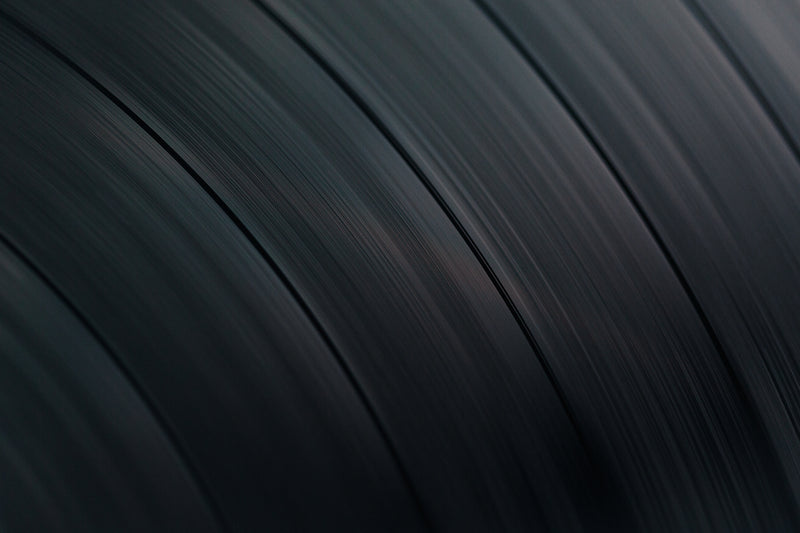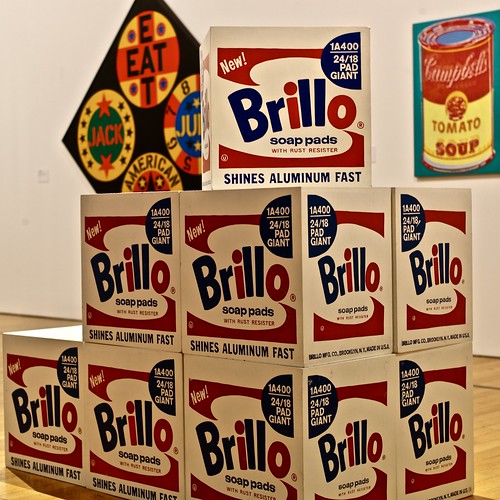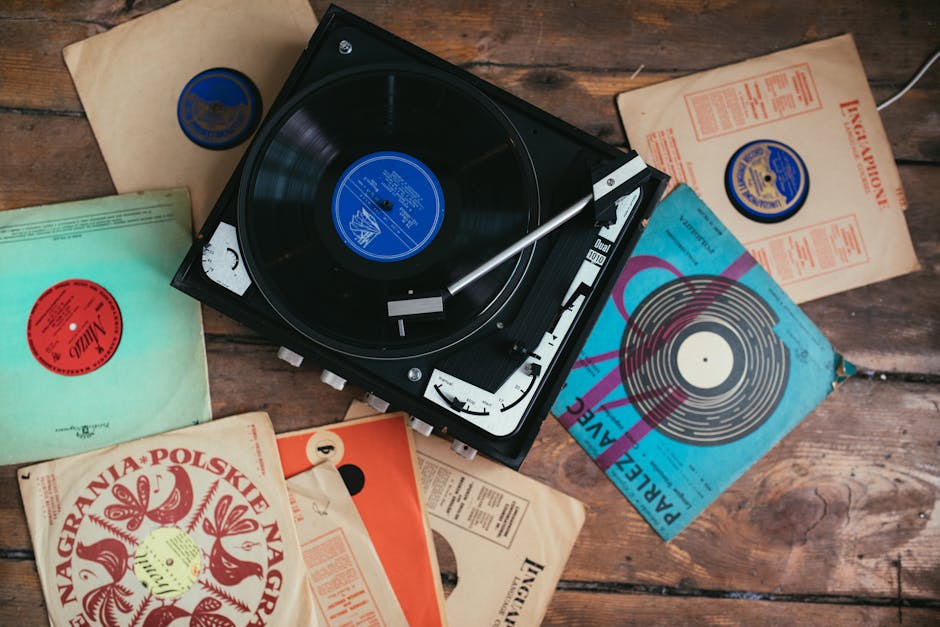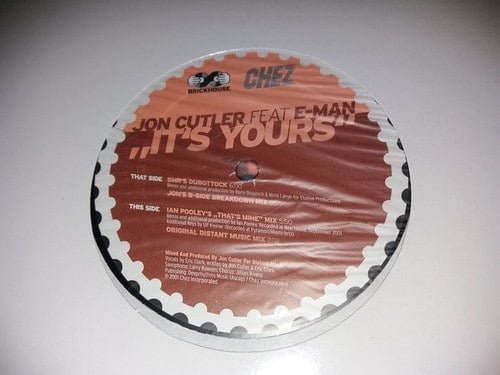Vinyl records have been around for decades, and they are making a huge comeback in the music industry. But where do they come from? How do they get made? And what makes them so valuable? In this blog post, we’ll explore the history, production and value of vinyl records to uncover their secrets and discover why they hold such an important place in music culture. So sit back, relax and get ready to learn more about these beloved pieces of art!
The Origins of Vinyl Records
Vinyl records are a type of music recording that was first created in the early 20th century. They are made from a vinyl record material that is pressed onto a disk with a sound recording on it. The popularity of vinyl records has increased in recent years, as they are seen as a more authentic form of music reproduction.
Vinyl records can be bought and sold at music stores, online retailers, and even at garage sales. They can also be traded or given as gifts. The value of a vinyl record depends on a number of factors, including the condition of the record, the artist, and the rarity of the record.
How Vinyl Records are Produced
Vinyl records are made from a vinyl record’s groove, which is a series of grooves on the disc that hold the music. The record is pressed onto a plastic disc that has a coating of lacquer. The coating is then cut into small pieces and applied to the vinyl record. The pieces of lacquer are then heated until they harden and form a smooth, shiny surface. This process creates the unique sound and look of a vinyl record.
There are three types of vinyl records: standard, 33 1/3 rpm, and 45 rpm. Standard vinyl records are the most common and have a diameter of 12 inches. They play at 33 1/3 rpm, which is the same speed as a CD. 33 1/3 rpm vinyl records are usually more expensive than 45 rpm vinyl records because they are rarer and have more sound quality. 45 rpm vinyl records play at a faster speed than standard vinyl records and are usually used for dance music or rock music.
Vinyl records can be played on any standard turntable. Some turntables have built-in speakers that allow you to listen to vinyl records without an amplifier or stereo system. You can also buy separate speakers to play vinyl records on your stereo system.
Vinyl records are not as popular as they were in the past, but they are still worth money if you can find them in good condition. Most vinyl records that are sold today are used or worn out. You can find new vinyl records online or at local music stores, but they are usually more expensive than used or worn out vinyl records.
If you’re interested in collecting vinyl records, it’s important to know the different types of vinyl records and their sound quality. You can also find information about collecting vinyl records online or at local music stores.

The Different Types of Vinyl Records
There are a variety of different types of vinyl records, each with its own unique production and collector value. Some of the most popular types of vinyl records include classic rock, soul, and country albums.
Classic rock albums, for example, typically feature well-known songs from well-known artists. These albums can be valuable collectors items, as they often feature rare or unreleased tracks.
Soul and country albums are also popular collector items. Soul albums typically feature soul music from the 1960s and 1970s, while country albums typically feature country music from the 1950s through the 1970s.
Both soul and country music have experienced a recent resurgence in popularity, thanks in part to the popularity of streaming services like Spotify and Pandora. As a result, many classic soul and country albums are now worth a lot more than they were when they were first released.
Some other types of vinyl records that are worth collecting include rare funk and disco albums, as well as rare gospel records.
Vinyl Record Collecting as a Hobby
How Vinyl Record Collecting Became Popular
Just like any other type of collectible, vinyl records have come to be popular among hobbyists. Vinyl record collectors may enjoy hunting down rare and hard-to-find albums, as well as tracking the evolution of music technology. While there are certainly those who consider vinyl records a waste of money, most find it enjoyable to own a collection of LP’s. In fact, many vinyl record enthusiasts say that the sound quality is superior to CDs or MP3s. So why was vinyl record collecting only becoming more popular in recent years?
One reason is that prices for rare vintage albums have been on the rise in recent years, which has made them more accessible for collectors. Additionally, digital downloads have eliminated some of the appeal for owning physical copies of music. However, many vinyl record enthusiasts argue that the sound quality of vinyl records is simply better. Additionally, vinyl records can last longer than CDs or MP3s, which may be a consideration for some collectors.
Evaluating the Condition of Records
Collecting vinyl records has become a popular hobby in recent years. Vinyl records offer a unique and collectible experience that cannot be found with any other format. Vinyl records are made up of two layers: the record itself and the sleeve or cover. The record is coated in a plastic material that protect it from scratches and keep its sound quality. When buying a new vinyl record, make sure to examine the album’s condition. If there are noticeable tears or pieces missing from the sleeve, it may not be worth your time to purchase it. New albums usually come packaged in shrink-wrapped sleeves for protection during shipping, so unless you are looking for an older album that has been abused, do not bother grading the condition. However, if an album is in poor condition and has many scratches or tears, it may be worth less than an album that is in fine condition.
What Makes a Record Valuable to Collectors
Vinyl records are worth money to collectors for a variety of reasons. The sound quality is generally better than that of CDs or MP3s, and the artwork can be collector favorite. Many vinyl record collectors also focus on rarer titles or collect different genres of music, such as rock 45s, soul 7-inches, or Euro disco 12 inches. Ultimately, the value of a vinyl record is based on its condition and rarity.
Exploring Different Types of Vinyl Pressings
Vinyl records are one of the most popular formats for music collectors. They offer a unique listening experience that cannot be found on any other type of media. Vinyl records are made up of two different types of recordings: analog and digital. Analog records use a needle to transfer the sound from the vinyl to a disc, while digital records use a laser to create an electronic file.
There are many factors that determine the value of a vinyl record. The first is the condition of the record. A record in perfect condition would be worth more than one that is damaged or scratched. The second factor is the pressing. A rarer pressing will be worth more than a common one. The third factor is the artist. Some artists have more popular vinyl records than others, so their records will be worth more.

Popularity of Vinyl Records Today
Since the resurgence of vinyl records in the late 1990s, they have become increasingly popular as a collector’s item. Vinyl records are usually made out of a smooth plastic material and can be played on most turntables. Many people consider vinyl records to be more durable than CDs, and some collectors even believe that vinyl records sound better than their digital counterparts. The value of vintage vinyl records depends on many factors, including the album cover, rarity, condition and playability.

How to Care for Your Vinyl Records
When it comes to vinyl records, some collectors prize them for their classic and vintage sounds. But what exactly makes a vinyl record valuable? First and foremost, vinyl records are rare and difficult to produce. They’re also durable, so they can still play after years of wear. Collectors also appreciate the unique artwork on vinyl records, which is often less prominent on CDs or digital files. And finally, many people believe that vinyl records have a warmer sound than other music formats. So if you’re looking to add some old-school charm to your music collection,vinyl may be a good option!
What Makes Vinyl Records Valuable?
Rarity and Limited Edition Pressings
There are many factors that contribute to the value of vinyl records, the most important being rarity and limited edition pressings. Rarity is simply what makes a particular vinyl LP worth more than others. There are rare records that have never been released on CD or digital formats, meaning they’re only available as vinyl LPs. They’re also difficult to find because few people want them, and collectors often pay a higher price for them.
Limited editions can make a record even more valuable. These pressings are made in very small amounts and are usually only available through special dealers or auction websites. They can be extremely collectible, and bidding can get very high prices indeed!
Quality of Sound
Aside from their collectible value, vinyl records also have a sound quality that is often considered superior to CD or digital formats. This can largely be attributed to the fact that vinyl records use physical methods such as spinning discs rather than using a digital file. Additionally, vinyl records are not limited in production like CDs are and can therefore hold more music content than other formats.
Collectability and Investment Potential
Vinyl records are special because they can provide high-quality sound compared to other formats, such as CD’s or MP3s. They may cost more than other formats, but their collectability and investment potential make them valuable. Vinyl records are often collected by fans of a certain artist or genre, which can increase their value over time.
Nostalgia and Sentimental Value
There is no doubt that vinyl records are still worth money, even though they’re not as popular as they once were. Vinyl records generally have a higher collector value than their CD and MP3 counterparts because of nostalgia and sentimental value. Additionally, some vinyl records may be worth more due to the rarity of certain recordings or editions.
Where to Buy and Sell Vinyl Records
When evaluating the value of your vinyl records, it is important to consider the following factors: condition, sound quality, rarity and market interest.
Condition is one of the most important factors to consider when appraising a vinyl record collection. Many collectors will only buy records in perfect condition, regardless of their worth. However, some collector may be more interested in older records with worn covers or labels. It is also important to assess if any damage has been done to the album cover or inner sleeve during its lifetime.
Sound quality can also be an important factor when assessing a vinyl record collection. Most people prefer recordings that are loud and clear because they believe it gives the music a more live feel. Older albums may sound quieter than newer ones due to deteriorating sound equipment or less-than-stellar recording techniques. It’s also worth noting how well individual songs stand out against each other on a record – higher-quality pressings are often marked by deeper basslines and richer instrumentation sounds overall. Some collectors will only purchase rarer sounding LPs over common stock simply because they want something that sounds better overall (even if it doesn’t necessarily mean it’s worth more money).
Rarity is another factor that can influence how much a vinyl record costs. Records available on everyday store shelves are generally less rare than those that are difficult or impossible to find without investing time and money into tracking them down. Collectors often assign higher values to LP copies that have unique artwork or limited edition runs – these features increase their appeal even further for people who appreciate special touches in their life’s entertainment pursuits.
Lastly, market interest can play a role in determining the value of your vinyl records as well – especially if there isn’t another similar copy available for sale nearby.. In recent years there has been an resurgence in demand for vintage pop culture items such as Star Wars toys and Evel Knievel paraphernalia due to increasing prices on these collectibles online.. This means that certain old albums may sell for significantly more than others depending on what’s popular at the time.. For example, an album from 1985 featuring Sting might sell for less than an album by The Cars released just two years later because fewer Sting fans would need to purchase it secondhand.. This unpredictability makes pricing Vinyl Records difficult but definitely adds an element of excitement and mystery into discerning which collections are really worthy of taking home!
Tips for Evaluating the Value of Your Vinyl Collection
If you are looking to sell your vinyl records, there are a few things that you should keep in mind. First, it is important to understand the different types of vinyl records and their value. Second, you will need to determine what condition your vinyl records are in. Finally, advertising and setting a price can be tricky tasks. However, with some practice, selling vinyl records can be profitable.
Vinyl records have a timeless charm that will continue to draw new generations of fans and collectors. Whether you’re looking for the perfect addition to your collection or want to get started in vinyl record collecting, it’s important to understand how vinyl records are made, how to care for them, and what makes vintage pressings valuable. With this knowledge on hand you can make better informed decisions about where and when to buy or sell vintage vinyl. We hope this article has been helpful in understanding more about the history, production and value of vinyl records. For more tips on caring for your collection and growing as a collector, be sure check out our other content!








